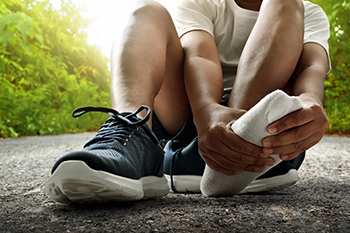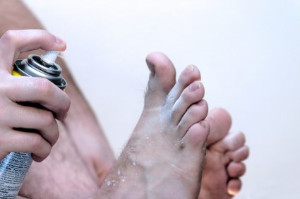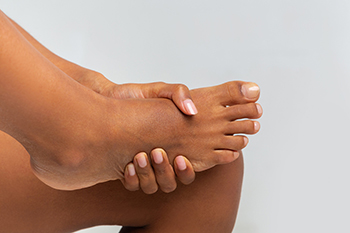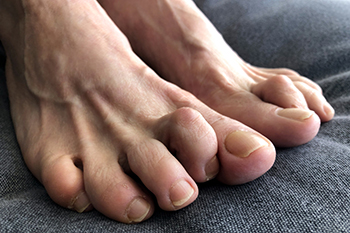
Running can be a good form of exercise and many enjoy this sport. However, like other physical sports, it can have negative effects on one’s feet. Heel pain is a common complaint among runners. This can be caused by overuse, plantar fasciitis, foot structure problems, or poor running form. It is critical that heel pain is treated promptly in runners to avoid further injury and complications. Plantar fasciitis is a condition where the plantar fascia, the ligament that runs from the heels to the toes on the soles of the feet, is overstretched or has slight tears. This results in heel pain, which is often worse after rest. People with flat feet or high arches represent examples of those with foot structure problems that put stress on the plantar fascia and can lead to heel pain after running. There are many other reasons heel pain may affect runners, and if this is something you suffer from, it is suggested that you see a podiatrist who can help you get to the root cause of the pain and offer effective treatment solutions.
Many people suffer from bouts of heel pain. For more information, contact one of our podiatrists of Foot Health Center of Merrimack Valley. Our doctors can provide the care you need to keep you pain-free and on your feet.
Causes of Heel Pain
Heel pain is often associated with plantar fasciitis. The plantar fascia is a band of tissues that extends along the bottom of the foot. A rip or tear in this ligament can cause inflammation of the tissue.
Achilles tendonitis is another cause of heel pain. Inflammation of the Achilles tendon will cause pain from fractures and muscle tearing. Lack of flexibility is also another symptom.
Heel spurs are another cause of pain. When the tissues of the plantar fascia undergo a great deal of stress, it can lead to ligament separation from the heel bone, causing heel spurs.
Why Might Heel Pain Occur?
- Wearing ill-fitting shoes
- Wearing non-supportive shoes
- Weight change
- Excessive running
Treatments
Heel pain should be treated as soon as possible for immediate results. Keeping your feet in a stress-free environment will help. If you suffer from Achilles tendonitis or plantar fasciitis, applying ice will reduce the swelling. Stretching before an exercise like running will help the muscles. Using all these tips will help make heel pain a condition of the past.
If you have any questions please contact one of our offices located in North Andover, and Tewksbury, MA . We offer the newest diagnostic and treatment technologies for all your foot and ankle needs.










